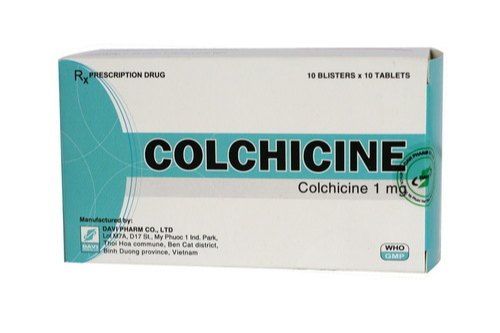Researchers are leaving no stone unturned when it comes to finding ways to treat or prevent COVID-19, the infection caused by the novel virus.
Now a new trial of an old arthritis drug called colchicine will tell us whether it can prevent serious complications associated with COVID-19 in the first place.
Colchicine is one of the oldest oral anti-inflammatory drugs, which has long been advised for the treatment of gout, a type of arthritis. It is the most ancient drug, which was first sourced from the autumn crocus flower.
The drug is also used to treat pericarditis, the inflammation of the sac around the heart called pericardium.
Researchers from the United States and Canada are testing colchicine for keeping high-risk patients from getting critically ill.
Several anti-inflammatory drugs, including colchicine, are undergoing clinical trials for treating COVID-19. And this is because of a growing belief that the virus is causing an intense immune reaction called a cytokine storm, which leads to blood clotting.
Rheumatologist Dr. Randy Cron of the University of Alabama at Birmingham said, “I think there’s pretty substantial evidence that cytokine storm is involved.”
A cytokine storm is an exaggerated immune response that floods the body with proteins (cytokines), triggering widespread inflammation and causing fatal damage to organs.
Dr. Cron, who was not part of the trial, wrote a textbook on cytokine storm called “2019 Cytokine Storm Syndrome.”
The immune reaction to the new coronavirus is not unique, explained Dr. Cron, adding that a cytokine storm can arise in response to other infectious diseases, as well as cancer and its treatments. The intense immune reaction can also be seen in people with autoimmune diseases.
However, the cytokine storm caused by COVID-19 seems to be unique in certain ways, noted Dr. Cron. “One example is that it sets up shop in the lungs first,” he said.
So, Dr. Cron and other scientists believe that treating the cytokine storm could play a key role in combating the ongoing coronavirus pandemic.
And some potent anti-inflammatory drugs, especially those used for rheumatoid arthritis, are already undergoing clinical trials.
However, the colchicine study is different, according to the new trial researcher Dr. Priscilla Hsue of the University of California, San Francisco (UCSF).
“One of the unique aspects is that we’re trying to hit this before people need to be hospitalized,” said Dr. Hsue.
She explained that colchicine tablets are convenient to take and inexpensive, unlike the drugs used in hospitals, which are administered through infusion or injection. Also, colchicine has been long used for the treatment of gout.
Besides, Dr. Hsue added, “A recent trial found that low-dose colchicine benefits people who’ve recently suffered a heart attack. Patients who took one tablet a day curbed their risk of further heart complications or stroke over the next two years.”
It has also been found that critically ill COVID-19 patients develop a heart injury problem, probably due to the cytokine storm. Dr. Hsue said this raises a question of whether this gout could prevent heart injury.
The colchicine study aims to enroll 6,000 newly diagnosed COVID-19 patients who are at increased risk of developing a serious illness, especially those who are 69 and above or have conditions such as heart or lung illness.
Enrolled patients will receive colchicine by courier and have follow-up visits through phone or video.
The study researchers will analyze the hospitalization rates and death rates over one month.
However, Dr. Cron expressed concern over the use of colchicine in people with no signs of the intense immune reaction. “My concern is, could it make the infection worse?” said Dr. Cron.
Dr. Hsue, however, said colchicine will be given in lower doses than what is routinely used for the gout treatment. The article originally appeared in WebMD.























